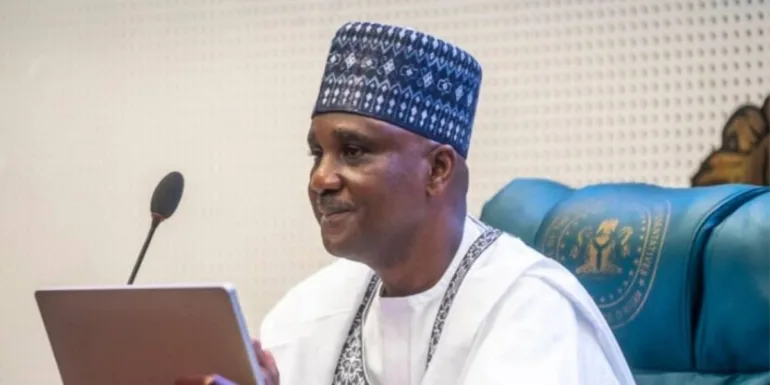The Speaker of the House of Representatives, Abbas Tajudeen, has announced the withdrawal of the bill proposing to amend the Electoral Act 2022 to make voting mandatory for all eligible Nigerians.
The announcement was made in a statement signed by his Special Adviser on Media and Publicity, Musa Krishi, and shared with The T on Monday.
Tajudeen explained that the decision follows extensive consultations with stakeholders, emphasizing that the bill—co-sponsored by the member representing Bassa/Jos North Federal Constituency, Daniel Ago—was introduced with the “best of intentions” to enhance civic engagement and strengthen democracy by boosting voter turnout.
“Compulsory voting has been successfully implemented in countries such as Australia, Belgium, and Brazil, where participation rates exceed 90 percent. Nations like Argentina and Singapore have also adopted similar policies to encourage inclusivity at the polls,” he noted.
However, Tajudeen acknowledged the importance of respecting individual freedoms and public opinion. Instead of mandating voting, he is committed to exploring positive incentives and innovative strategies to make voting more attractive and accessible.
“This withdrawal will provide time for further dialogue on how best to foster a culture of voluntary participation that upholds our democratic values and citizens’ rights,” he said.
The bill had progressed to the second reading before being withdrawn amid widespread criticism. Many Nigerians, including legal experts, argued the proposal was unconstitutional.
Senior Advocate of Nigeria (SAN) Olisa Agbakoba, speaking on Channels Television’s Politics Today, rejected the idea of compulsory voting, stating, “If that bill were to pass, I would refuse to obey it. I’d plead conscientious objection and would rather go to prison than comply.”
Human rights lawyer and SAN Femi Falana also condemned the bill, emphasizing that constitutional provisions protect Nigerians’ rights to privacy, freedom of thought, and conscience. In a statement dated May 19, 2025, titled “Compulsory Voting is Not Enough”, Falana asserted that the bill conflicts with Sections 37, 38, 77(2), 135(5), and 178(5) of the Nigerian Constitution, rendering it constitutionally invalid.


